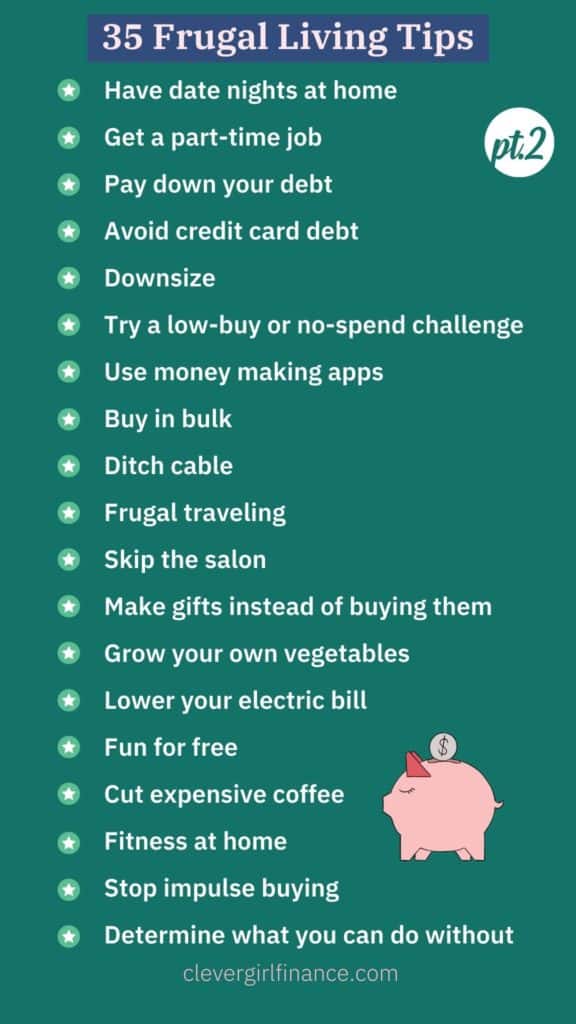Living a frugal lifestyle has become a popular trend in recent years, and for good reason. With rising costs of living and stagnant wages, more and more people are seeking ways to stretch their hard-earned money further. Being frugal doesn’t mean living a deprived or miserable life; rather, it is about being smart with your finances and making conscious choices that align with your values and goals.
Frugality, to me, goes beyond just being “cheap.” It’s about being mindful of where my money is going and making intentional decisions about my spending. It’s about finding joy in simple pleasures and being creative with what I already have.
One of the first steps to embracing a frugal lifestyle is to establish a budget. This might sound daunting at first, but I promise you, it’s not as scary as it seems! Start by tracking your expenses for a month, noting down every single penny you spend. This exercise will help you identify areas where you might be overspending without even realizing it. Once you have a clear picture of your spending habits, you can set realistic goals and allocate your money accordingly.
Cutting back on unnecessary expenses is a key aspect of frugal living. Take a look at your monthly bills and subscriptions – are there any that you could live without? Canceling that gym membership you never use or downsizing your cable package can save you significant amounts of money each month. Assessing your spending habits can also help you identify areas where you can make cost-effective choices, such as brewing your own coffee at home instead of buying it on the go every day.
One of the most effective ways to save money is by adopting a minimalist mindset. We live in a consumer-driven society where we’re constantly bombarded with advertisements and encouraged to buy things we don’t need. Embracing minimalism means being intentional about what we bring into our lives. It’s about decluttering our homes, our schedules, and our minds. By living with less, we not only save money but also reduce stress and increase our overall well-being.
Grocery shopping is an area where many of us overlook the potential for savings. Planning meals in advance, creating a grocery list, and sticking to it can significantly reduce food waste and save you money. Buy in bulk when possible, look for sales and discounts, and consider generic or store-brand products. Additionally, learning to cook from scratch can be not only a fun and rewarding experience but also a great way to save money. Explore new recipes, experiment with ingredients you already have, and say goodbye to expensive take-out meals.
Another aspect of frugal living that I find personally rewarding is finding alternative ways to indulge in entertainment and leisure activities. Instead of going out to expensive restaurants, why not invite friends over for a potluck dinner? Hosting a movie night at home can be just as enjoyable as going to the cinema, and it costs a fraction of the price. Research free or low-cost community events in your area, such as local concerts or outdoor festivals. You’ll be surprised at how many budget-friendly activities are available if you know where to look.
Being frugal also means being resourceful. Instead of throwing away items that are broken or worn out, try your hand at repairing or repurposing them. This not only saves you money but also helps reduce waste and is better for the environment. Upcycling old furniture or clothing, learning basic sewing skills, or fixing small household appliances can be empowering and can save you a significant amount of money in the long run.
Finally, a frugal lifestyle is not about deprivation but rather about finding joy in simple pleasures. Instead of constantly chasing the latest trends or material possessions, focus on the experiences and relationships that truly bring you happiness. Enjoying a picnic in the park, taking a walk in nature, or spending quality time with loved ones can be far more fulfilling than any expensive gadget or luxury item. By shifting our mindset and appreciating the little things in life, we can find contentment and satisfaction without breaking the bank.
In conclusion, embracing a frugal lifestyle is not about being cheap or denying ourselves of the things we enjoy. It’s about making intentional choices, being mindful of our spending, and finding joy in simple pleasures. By adopting a minimalist mindset, cutting back on unnecessary expenses, being resourceful, and focusing on experiences rather than material possessions, we can live a fulfilling and financially sustainable life. So, let’s embark on this frugal journey together and discover the countless benefits it can bring to our lives.
